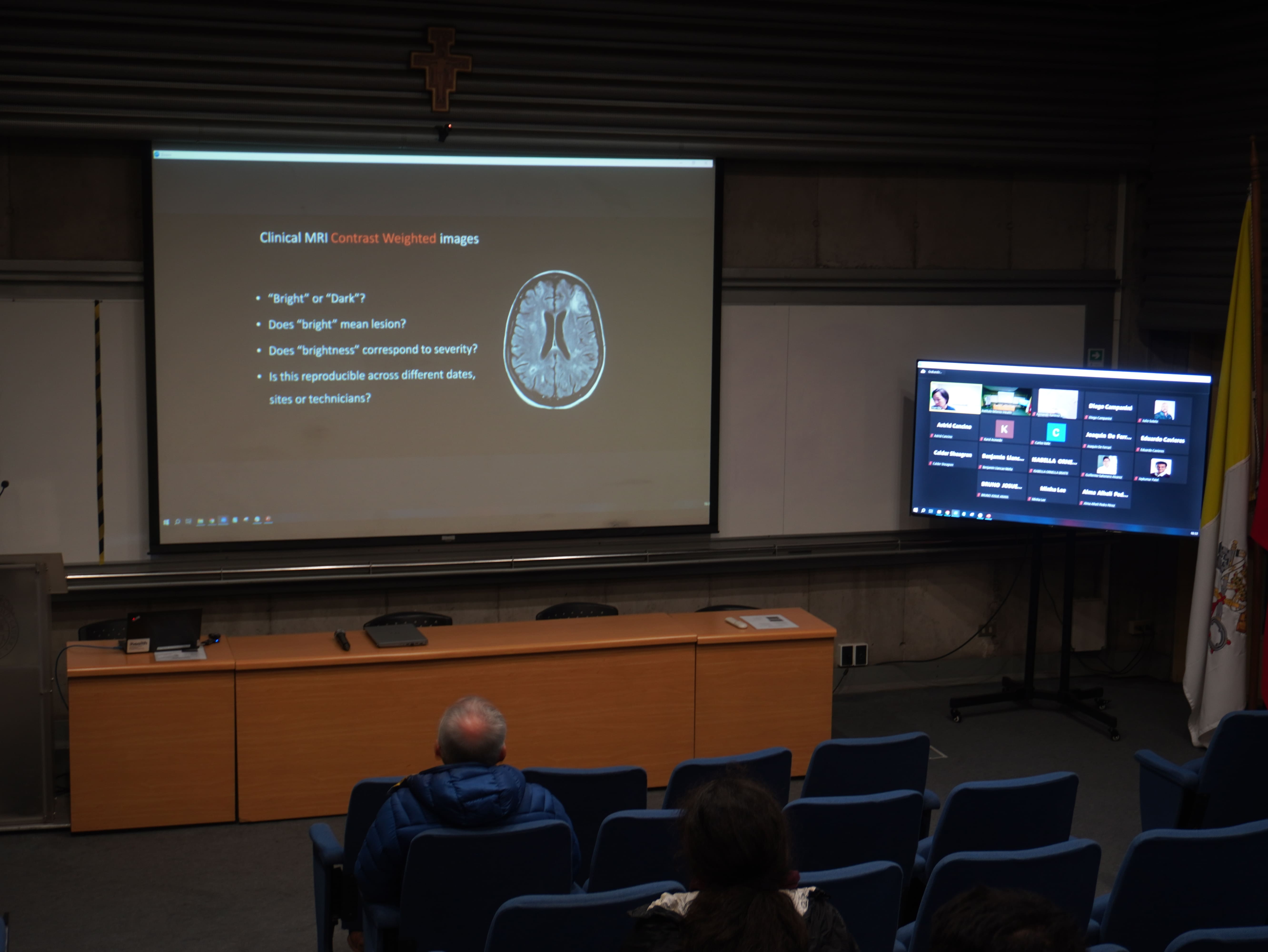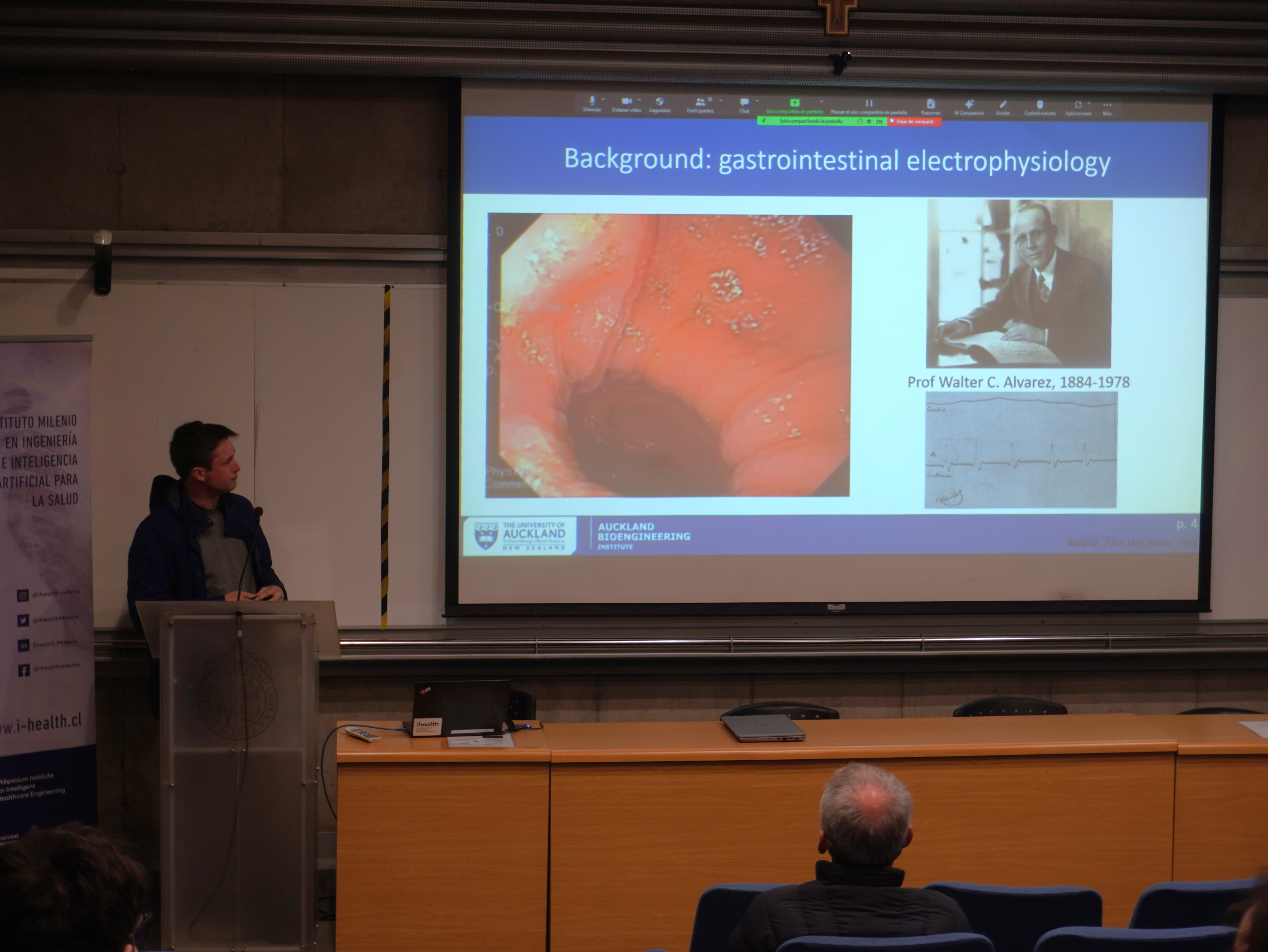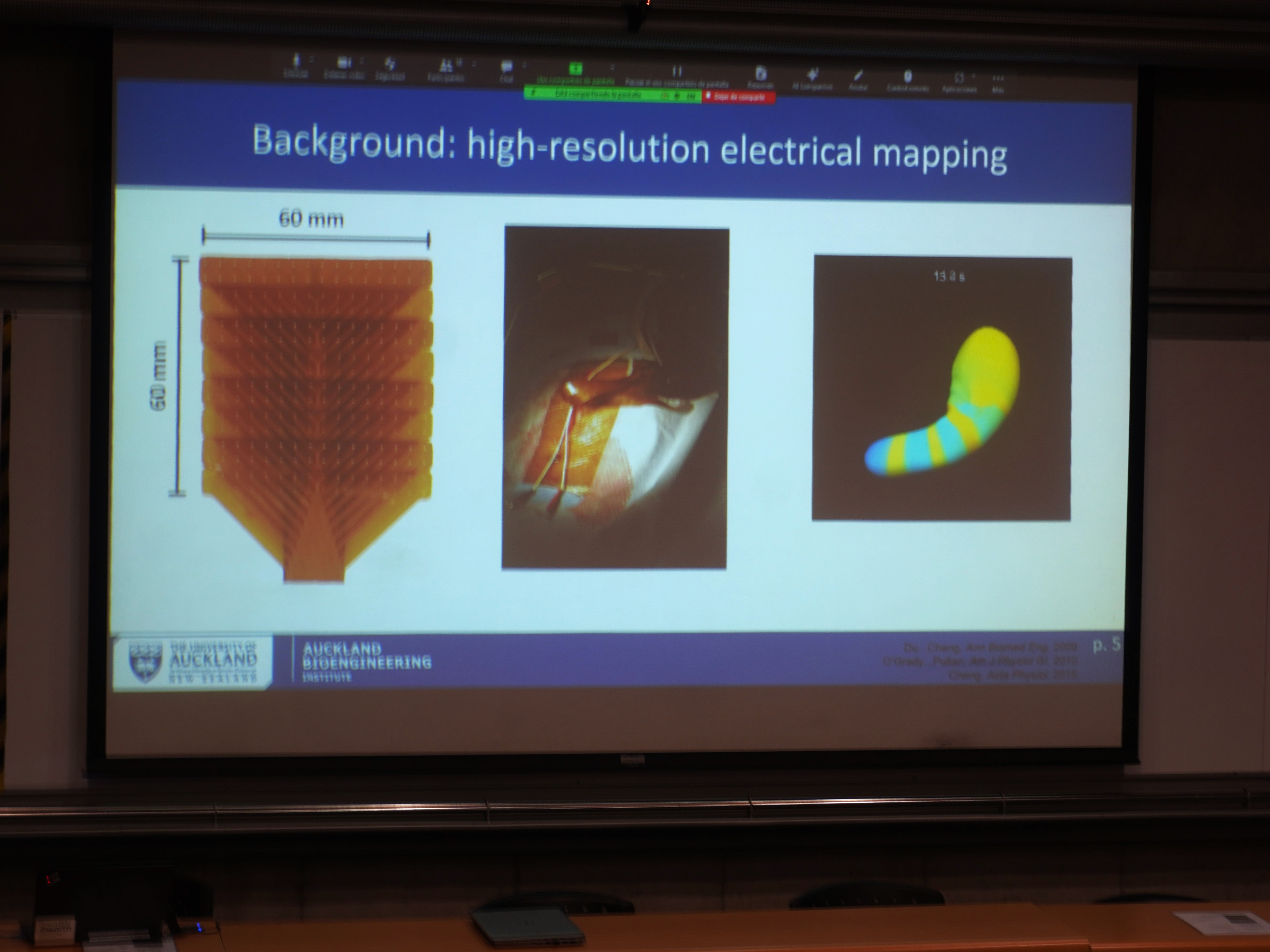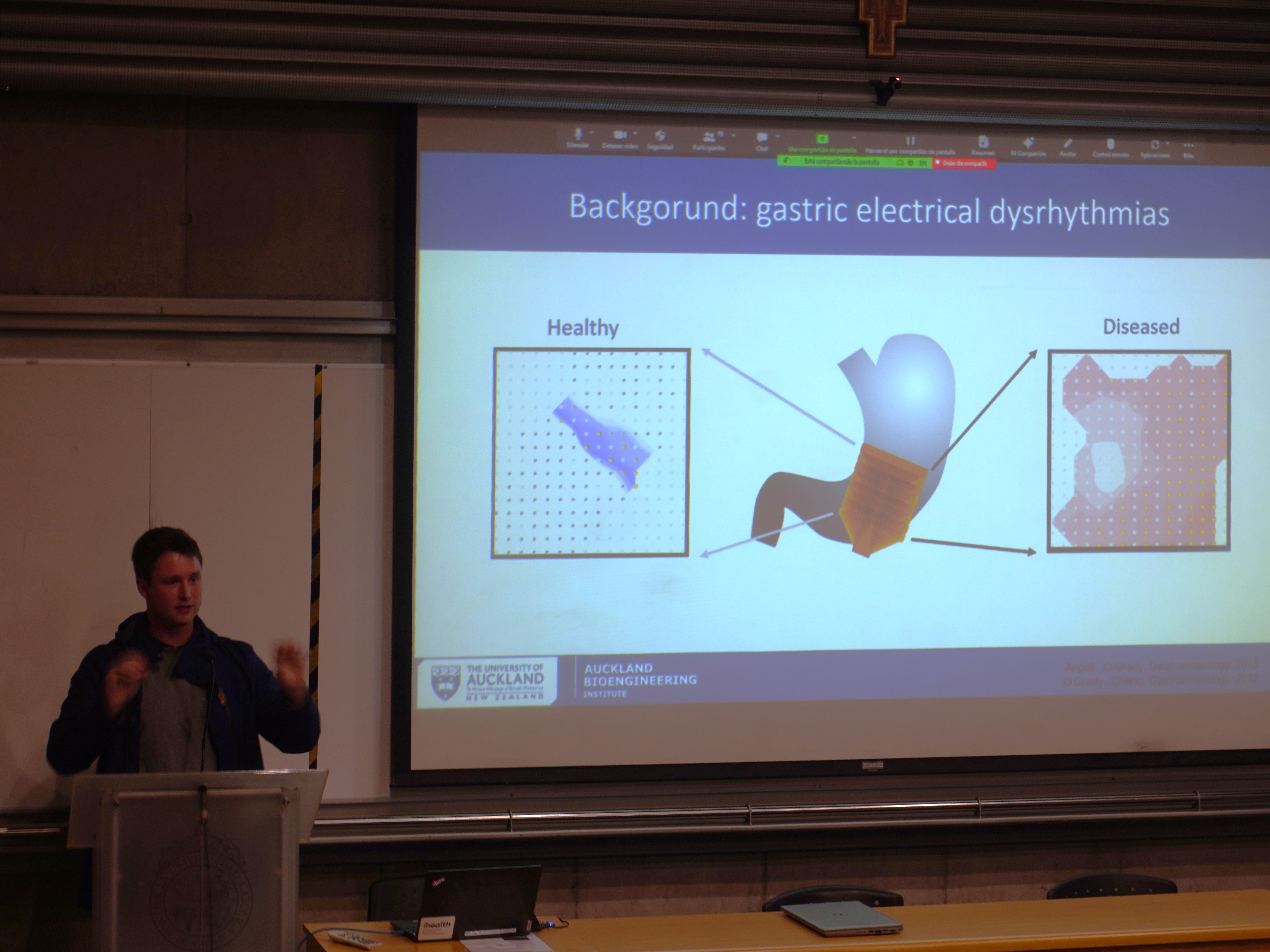Seminario 18 de Junio 2024
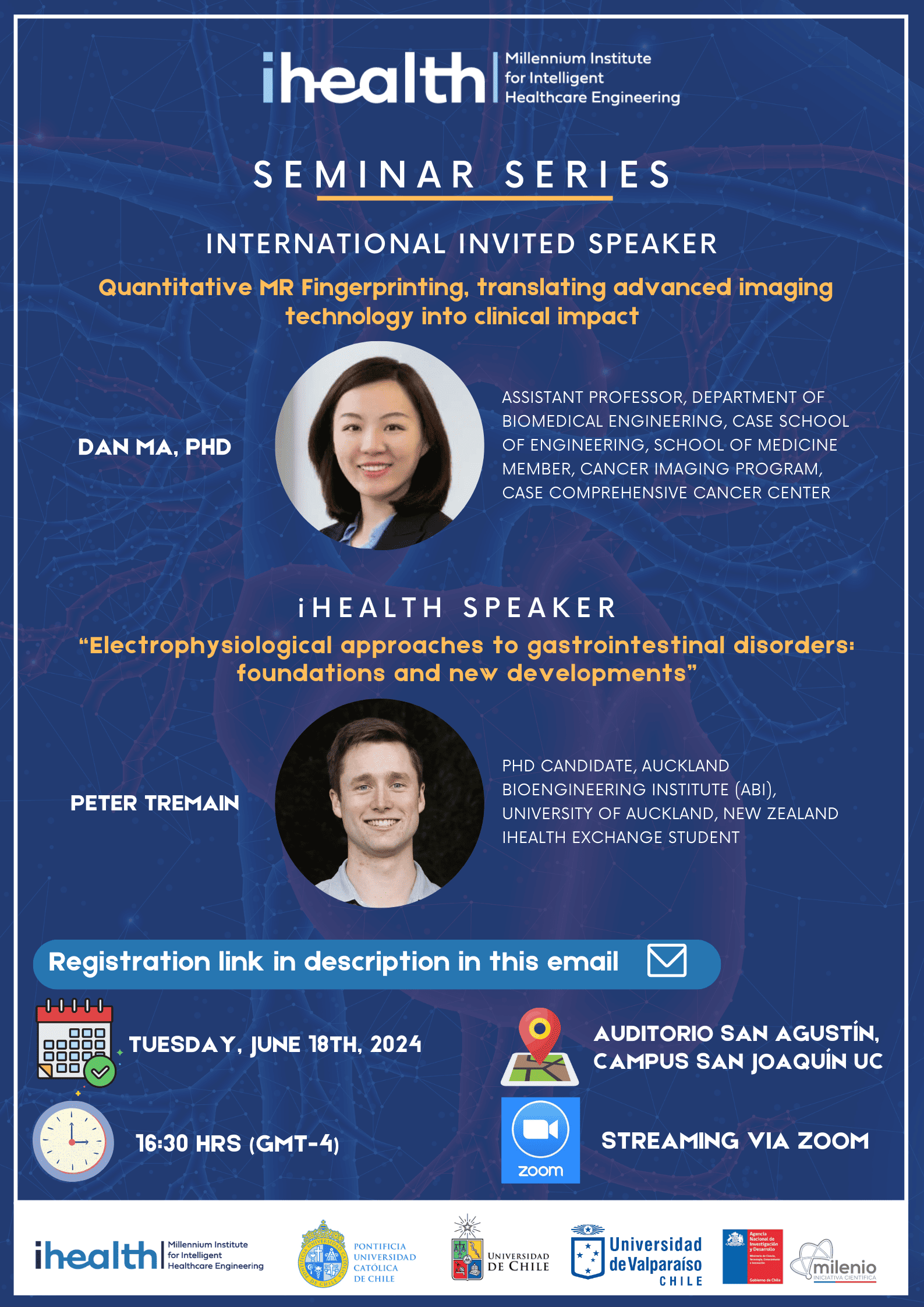
Horario: 16:30 - 18:00
INTERNATIONAL INVITED SPEAKER
DAN MA
Assistant Professor, Department of Biomedical Engineering, Case School of Engineering, School of Medicine. Member, Cancer Imaging Program, Case Comprehensive Cancer Center.
TITLE: Quantitative MR Fingerprinting, translating advanced imaging technology into clinical impact
ABSTRACT: MR Fingerprinting (MRF) is a groundbreaking quantitative imaging technique capable of generating multiple tissue property maps simultaneously from a single MR scan. With demonstrated clinical feasibility, MRF has been successfully designed for various body regions and diseases. In multisite studies spanning multiple vendors, MRF has shown high reproducibility for tissue property mapping, overcoming scanner variations and other confounding factors. This makes MRF a powerful imaging tool for ensuring high quality control of the MRI source data, which is critical for subsequent analysis and informed clinical decision-making. By integrating the precision and sensitivity of MRF with cutting-edge image analysis techniques, we developed a comprehensive quantitative imaging framework, enabling improved diagnosis for epilepsy and brain tumors and early prediction of treatment responses.
SHORT BIO: Dr. Dan Ma is an Associate Professor in the Department of Biomedical Engineering at Case Western Reserve University. Dr. Ma's research focuses on the development and clinical translation of innovative quantitative MRI technology. As the key inventor of MR Fingerprinting and the first author of the seminal MRF paper published in Nature, Dr. Ma has made significant
contributions in making quantitative MR Fingerprinting fast and robust for various clinical applications. In partnership with the industry, Dr. Ma is also actively working on translating the MRF technology into a product to become a clinical routine. Dr. Ma is a Junior Fellow, a Young Investigator Awardee, Chair of the quantitative MR study group in the International Society of Magnetic Resonance in Medicine and a Senior Member of the National Academy of Inventors.
iHEALTH SPEAKER
PETER TREMAIN
PhD Candidate, Auckland Bioengineering Institute (ABI), University of Auckland, New Zealand. iHEALTH exchange student.
TITLE: Electrophysiological approaches to gastrointestinal disorders: foundations and new developments
ABSTRACT: Gastric motility is coordinated, in part, by rhythmic bioelectrical events called slow waves. Dysrhythmic slow waves with abnormal propagation patterns have been associated with a number of motility disorders, including functional dyspepsia and gastroparesis, which affect approximately 15% of the global population. No definitive diagnostic test currently exists for these diseases, with diagnosis usually achieved through an "exclusion diagnosis". Treatment options, for the most part, also fail to address the underlying cause of the disorders, instead focusing on temporary symptom relief. Over the past 10 years, techniques for high-resolution (HR) mapping of gastrointestinal slow waves have potentially laid the foundation for a new clinical pipeline, targeting the underlying electrophysiological abnormalities of these diseases. More recently, significant success with Body-Surface-Gastric-Mapping (BSGM), HR endoscopic mapping, and targeted endoscopic ablation, have accelerated this new pipeline towards clinical utility. This talk will delve into both the foundational understanding of electrophysiological approaches to gastrointestinal disorders, and the state-of-the-art developments emerging in the field.
SHORT BIO: Peter Tremain is a doctoral student from the Auckland Bioengineering Institute (ABI), University of Auckland, New Zealand (https://www.auckland.ac.nz/en/abi.html). Peter obtained his BE in Mechanical Engineering from the University of Canterbury, subsequently
spent time in consultancy, and then completed his ME in Bioengineering at the ABI, before progressing to his current doctoral program. Peter's research is focused on the development of minimally invasive techniques to measure stomach electrical activity, which can form part of a wider emerging treatment pipeline for functional gastrointestinal disorders targeting electrophysiological abnormalities. Peter is currently on a research placement in Chile, working with Prof. Julio Sotelo and Prof. Carolina Saavedra to refine signal processing methods for endoscopic gastric bioelectric recordings. From August, Peter will be based in the Traverso lab, at the Massachusetts Institute of Technology, refining device hardware used to obtain minimally invasive gastric bioelectric recordings.
